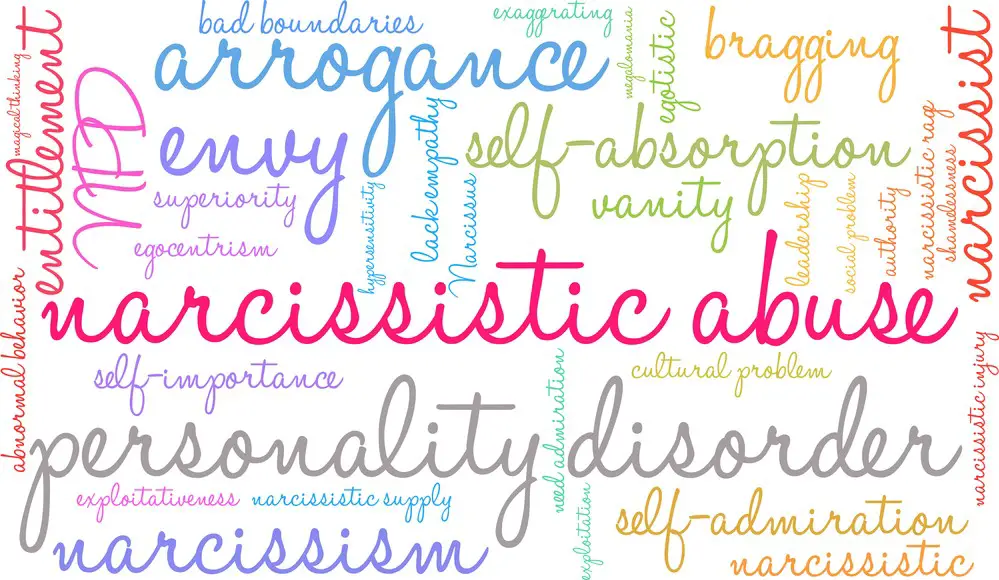As a BetterHelp affiliate, we receive compensation from BetterHelp if you purchase products or services through the links provided
Narcissistic personality disorder is a complex and sometimes damaging behavior pattern that can profoundly affect those caught in its web. Narcissists are notorious for using people to feed their insatiable need for attention and validation. In this article, we will delve into the subtle and not-so-subtle signs that a narcissist is using you. Recognizing these signs is a crucial first step in understanding the dynamics of a relationship with a narcissist and making informed decisions about your well-being.

1. The Idealize-Devalue-Discard Cycle
One of the primary signs a narcissist is using you can be found in the idealize-devalue-discard cycle. Narcissists often follow this pattern in their relationships:
a. Idealization
The idealization phase is when a narcissist showers their target with praise, affection, and attention, creating an intense emotional bond. They may seem charming, caring, and attentive, making you feel special and valued.
b. Devaluation
Following the idealization phase, the narcissist will suddenly devalue their target, often through criticism, belittling comments, or withdrawal of affection. This sudden shift in behavior can be confusing and hurtful, leaving you questioning the true nature of the relationship.
c. Discarding
Eventually, the narcissist may discard their target, often without warning or explanation. This can leave you feeling abandoned, rejected, and emotionally devastated.
2. Emotional Rollercoaster
Narcissists are adept at taking you on an emotional rollercoaster, making you feel on top of the world one moment and utterly dejected the next. This intense fluctuation of emotions can create a sense of addiction to the highs, making it difficult to break free from the relationship.
3. Gaslighting and Manipulation
Gaslighting is a form of emotional abuse designed to make you question your memories, perceptions, and sanity. Narcissists are experts at gaslighting and will use it to control and manipulate you. They may deny things you know as true, tell you you’re imagining things, or make you question your memories and experiences.
4. Control and Possessiveness
Narcissists often display controlling and possessive behavior in their relationships. They may try to dictate your actions, decisions, and thoughts, attempting to exert complete control over every aspect of your life. This controlling behavior can leave you feeling trapped and suffocated in the relationship.
5. Lack of Empathy and Emotional Support
One of the most telling signs a narcissist is using you is their inability to empathize with your feelings or provide emotional support. Narcissists are often emotionally unavailable and may dismiss or minimize your feelings, leaving you unheard and invalidated.

6. Constant Criticism and Belittling
Narcissists tend to criticize and belittle their partners, often to maintain control and superiority in the relationship. This constant criticism can erode your self-esteem and leave you feeling inadequate and unworthy.
7. Exploiting Your Kindness and Generosity
Narcissists are skilled at taking advantage of the kindness and generosity of others. They may use your good nature to manipulate you into doing things for them, even if it’s not in your best interest.
8. Isolation from Friends and Family
Narcissists use A common tactic to maintain control over their partners: isolating them from their friends and family. They may manipulate you into cutting off contact with your support network, leaving you increasingly dependent on the narcissist.
9. Inability to Accept Responsibility or Apologize
Narcissists are unwilling to accept responsibility for their actions or apologize for their mistakes. They will often deflect blame onto others or make excuses for their behavior, leaving you feeling frustrated and powerless.
10. Infidelity and Broken Promises
Narcissists often engage in infidelity and may make promises they have no intention of keeping. This pattern of unfaithfulness and broken promises can leave you feeling betrayed and distrustful in the relationship.
11. Sabotaging Your Success and Happiness
A narcissist may attempt to sabotage your success and happiness in various ways, such as undermining your accomplishments, belittling your achievements, or creating obstacles to your personal growth. This sabotage is designed to keep you dependent on the narcissist and maintain control over your life.
12. Your Friends and Family Express Concern
Suppose your friends and family are expressing concern about your relationship and warning you about your partner’s behavior. In that case, it’s a sign that they may recognize the signs a narcissist is using you. Trust their insights and consider their advice when evaluating the health of your relationship.
Recognizing the signs a narcissist is using can help you take steps to protect yourself from further harm and begin to heal. If you are in an abusive relationship with a narcissist, seeking professional help and looking for supportive people who can provide guidance and understanding is important. By being aware of these warning signs, you will be better equipped to make decisions that promote your safety and well-being.
Tips for Coping with a Narcissist:
• Set boundaries and be firm in upholding them.
• Don’t take their criticisms personally – it says more about them than you.
• Avoid engaging in debates or arguments.
• Focus on self-care practices to help build your resilience and emotional strength.
• Remember that you can set limits in your relationships and walk away from unhealthy dynamics.
• Seek professional help, such as counseling or therapy, if needed.
• Find support from friends and family who will listen without judgment.
By understanding these signs of narcissistic abuse, you can take the necessary steps to protect yourself and pry away from a toxic relationship. With compassion for yourself, self-care practices, professional help, and supportive connections, you can make empowering choices that prioritize your mental health and well-being.



